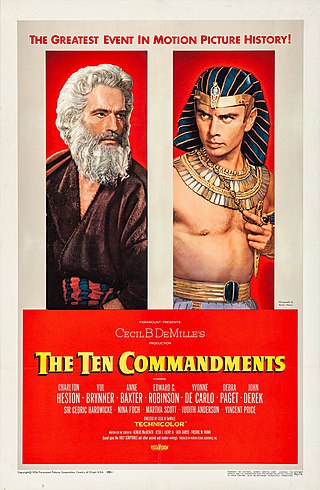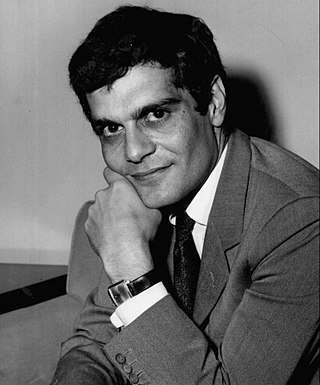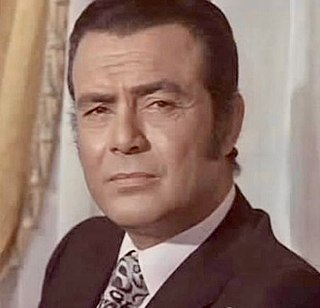Cleopatra was the last active Ptolemaic ruler of Egypt before it became a Roman province.

The Suez Crisis or the Second Arab–Israeli War, also referred to as the Tripartite Aggression in the Arab world and as the Sinai War in Israel, was a British–French–Israeli invasion of Egypt in 1956. Israel invaded on 29 October, having done so with the primary objective of re-opening the Straits of Tiran and the Gulf of Aqaba as the recent tightening of the eight-year-long Egyptian blockade further prevented Israeli passage. After issuing a joint ultimatum for a ceasefire, the United Kingdom and France joined the Israelis on 5 November, seeking to depose Egyptian president Gamal Abdel Nasser and regain control of the Suez Canal, which Nasser had earlier nationalised by transferring administrative control from the foreign-owned Suez Canal Company to Egypt's new government-owned Suez Canal Authority. Shortly after the invasion began, the three countries came under heavy political pressure from both the United States and the Soviet Union, as well as from the United Nations, eventually prompting their withdrawal from Egypt. Israel's four-month-long occupation of the Egyptian-occupied Gaza Strip and Egypt's Sinai Peninsula enabled it to attain freedom of navigation through the Straits of Tiran, but the Suez Canal itself was closed from October 1956 to March 1957. The Suez Crisis led to international humiliation for the British and the French in the wake of the Cold War, which established the Americans and the Soviets as the world's superpowers. It also strengthened Nasser's standing.

The Ten Commandments is a 1956 American epic religious drama film produced, directed, and narrated by Cecil B. DeMille, shot in VistaVision, and released by Paramount Pictures. The film is based on the 1949 novel Prince of Egypt by Dorothy Clarke Wilson, the 1859 novel Pillar of Fire by J. H. Ingraham, the 1937 novel On Eagle's Wings by A. E. Southon, and the Book of Exodus, found in the Bible. The Ten Commandments dramatizes the biblical story of the life of Moses, an adopted Egyptian prince who becomes the deliverer of his real brethren, the enslaved Hebrews, and thereafter leads the Exodus to Mount Sinai, where he receives, from God, the Ten Commandments. The film stars Charlton Heston in the lead role, Yul Brynner as Rameses, Anne Baxter as Nefretiri, Edward G. Robinson as Dathan, Yvonne De Carlo as Sephora, Debra Paget as Lilia, and John Derek as Joshua; and features Sir Cedric Hardwicke as Seti I, Nina Foch as Bithiah, Martha Scott as Yochabel, Judith Anderson as Memnet, and Vincent Price as Baka, among others.

Omar Sharif was an Egyptian actor, generally regarded as one of his country's greatest male film stars. He began his career in his native country in the 1950s. He is best known for his appearances in American, British, French, and Italian productions. His career encompassed over 100 films spanning 50 years, and brought him many accolades including three Golden Globe Awards and a César Award for Best Actor.

The Prince of Egypt is a 1998 American animated musical drama film produced by DreamWorks Animation and released by DreamWorks Pictures. The second feature film from DreamWorks and the first to be traditionally animated, it is an adaptation of the Book of Exodus and follows the life of Moses from being a prince of Egypt to a prophet chosen by God to carry out his ultimate destiny of leading the Hebrews out of Egypt. The film was directed by Brenda Chapman, Steve Hickner, and Simon Wells, and produced by Jeffrey Katzenberg, Penney Finkelman Cox, and Sandra Rabins, from a screenplay written by Philip LaZebnik. It features songs written by Stephen Schwartz and a score composed by Hans Zimmer. The film stars the voices of Val Kilmer, Ralph Fiennes, Michelle Pfeiffer, Sandra Bullock, Jeff Goldblum, Danny Glover, Patrick Stewart, Helen Mirren, Steve Martin, and Martin Short.

Samia Gamal was an Egyptian belly dancer and film actress.

Tawfiq al-Hakim or Tawfik el-Hakim was a prominent Egyptian writer and visionary. He is one of the pioneers of the Arabic novel and drama. The triumphs and failures that are represented by the reception of his enormous output of plays are emblematic of the issues that have confronted the Egyptian drama genre as it has endeavored to adapt its complex modes of communication to Egyptian society.

The Egyptian is a 1954 American epic historical drama film made by 20th Century-Fox. Filmed in CinemaScope with color by DeLuxe, it was directed by Michael Curtiz and produced by Darryl F. Zanuck. It is based on Mika Waltari's 1945 novel of the same name and the screenplay was adapted by Philip Dunne and Casey Robinson. Leading roles were played by Edmund Purdom, Bella Darvi, Jean Simmons, Victor Mature, Gene Tierney, Peter Ustinov, and Michael Wilding. Cinematographer Leon Shamroy was nominated for an Oscar in 1955.

Egypt, officially the Arab Republic of Egypt, is a transcontinental country spanning the northeast corner of Africa and the Sinai Peninsula in the southwest corner of Asia. It is bordered by the Mediterranean Sea to the north, the Gaza Strip of Palestine and Israel to the northeast, the Red Sea to the east, Sudan to the south, and Libya to the west. The Gulf of Aqaba in the northeast separates Egypt from Jordan and Saudi Arabia. Cairo is the capital and largest city of Egypt, while Alexandria, the second-largest city, is an important industrial and tourist hub at the Mediterranean coast. At approximately 100 million inhabitants, Egypt is the 14th-most populated country in the world, and the third-most populated in Africa, behind Nigeria and Ethiopia.
The following is a list of Egyptian films. The year order is split by decade. For an alphabetical list of films currently on Wikipedia, see Category:Egyptian films.

The cinema of Egypt refers to the flourishing film industry based in Cairo, sometimes also referred to as Hollywood of the East or Hollywood on the Nile. Since 1976, the capital has held the annual Cairo International Film Festival, which has been accredited by the FIAPF. There are an additional 12 festivals. Of the more than 4,000 short and feature-length films made in MENA region since 1908, more than three-quarters were Egyptian films. Egyptian films are typically spoken in the Egyptian Arabic dialect.
Events from the year 1956 in France.

Egypt first participated at the Olympic Games in 1912, and has sent athletes to compete in most editions of the Summer Olympic since then. Along with Cambodia, Iraq and Lebanon, Egypt boycotted the 1956 Summer Olympics in protest of the tripartite Israeli, British, and French invasion of Egypt in the Suez War. However, the equestrian events for the 1956 Games were held in Stockholm, Sweden five months earlier, and three Egyptian riders competed there. Egypt withdrew from the 1976 Summer Olympics after three days of competition to join the broad African boycott in response to the participation of New Zealand, who still had sporting links with apartheid South Africa. Egypt also participated in the American-led boycott of the 1980 Summer Olympics. Egypt's lone participation at the Winter Olympic Games was a single alpine skier in 1984.

Salah El-Din Ahmed Mourad Zulfikar was an Egyptian actor and film producer. He started his career as a police officer in the Egyptian National Police, before becoming an actor in 1956. He is regarded as one of the most influential actors in the history of the Egyptian film industry. Zulfikar had roles in more than a hundred feature films in multiple genres during a 37-year career, mostly as the leading actor. He was one of the most dominant leading men in Egyptian cinema.

The history of Egypt under Gamal Abdel Nasser covers the period of Egyptian history from the Egyptian Revolution of 1952, of which Gamal Abdel Nasser was one of the two principal leaders, spanning Nasser's presidency of Egypt from 1956 to his death in 1970. Nasser's tenure as Egypt's leader heralded a new period of modernisation and socialist reform in Egypt, along with a staunch advocacy of pan-Arab nationalism, and developing world solidarity. His prestige in Egypt and throughout the Arab World soared in the wake of his nationalisation of the Suez Canal Company in 1956, and Egypt's political victory in the subsequent Suez Crisis, but was damaged badly by Israel's victory in the Six-Day War.

Salah Zulfikar (1926–1993) was an Egyptian actor and film producer, who appeared in over 100 feature films, several short films, stage, television and radio serials. Zulfikar's film debut was in 1956 in a leading role becoming one of the most dominant leading men in Egyptian cinema. He starred in action, crime, war, drama, horror, romance, and romantic comedies.













